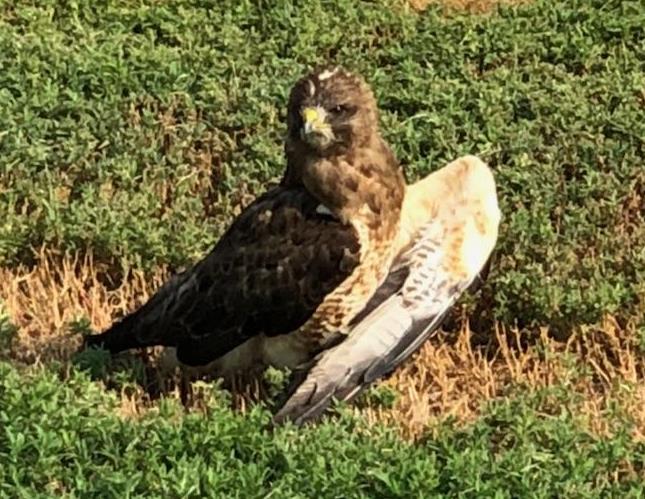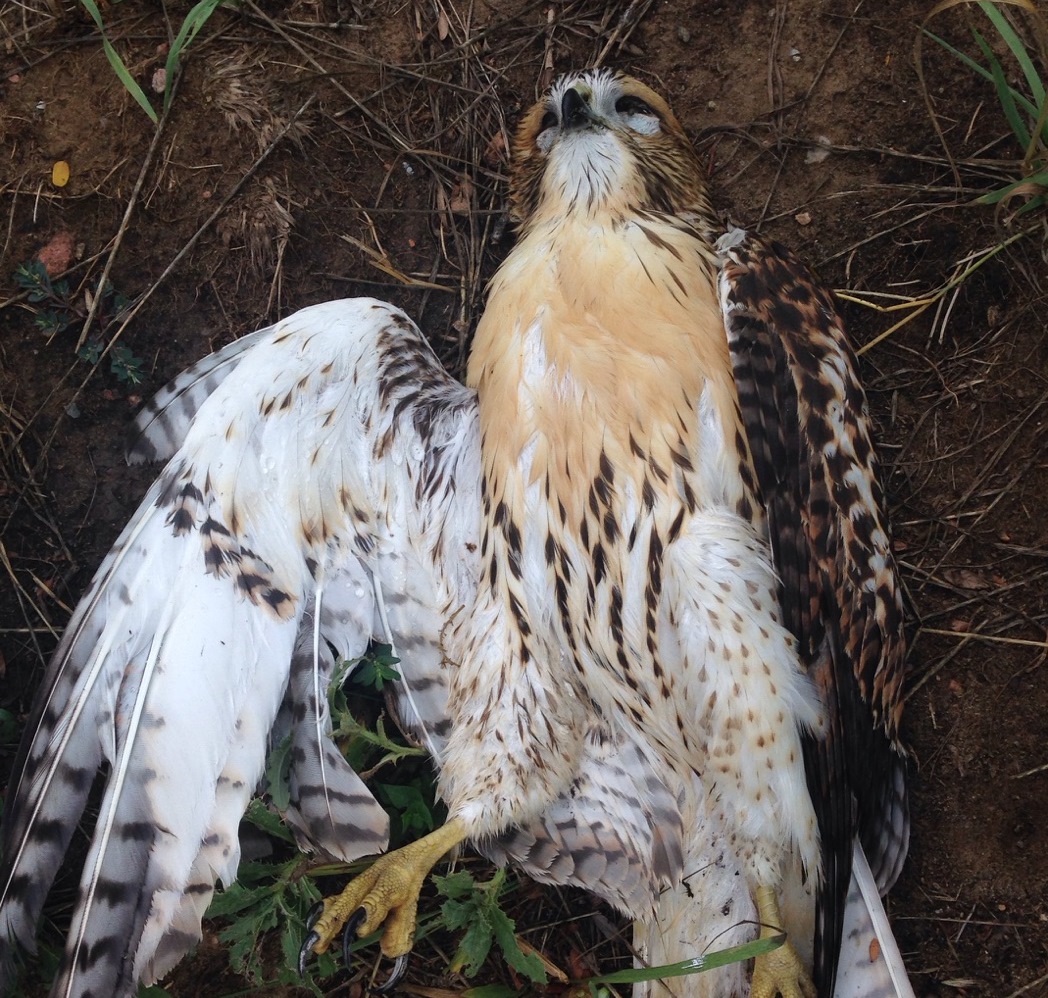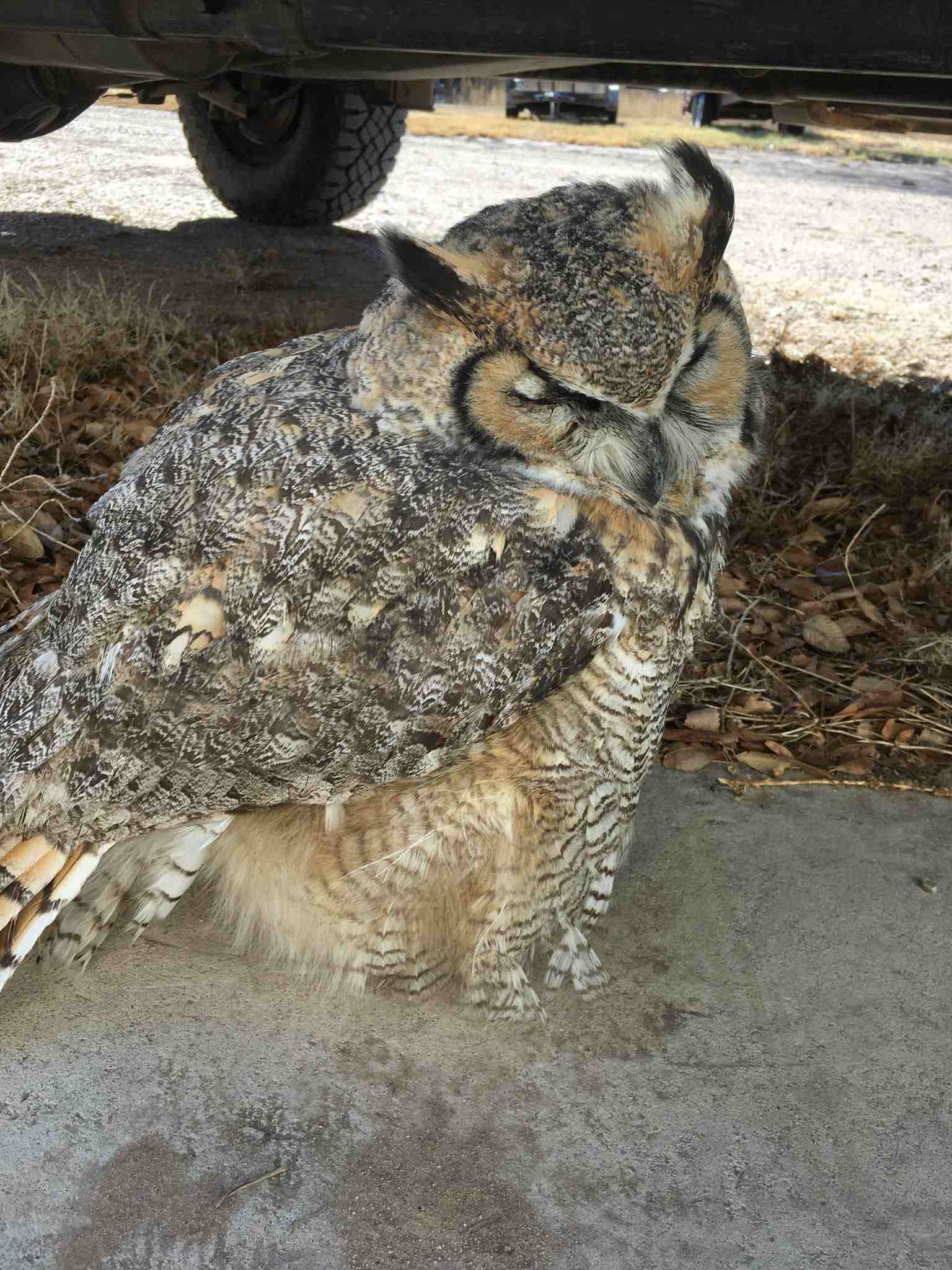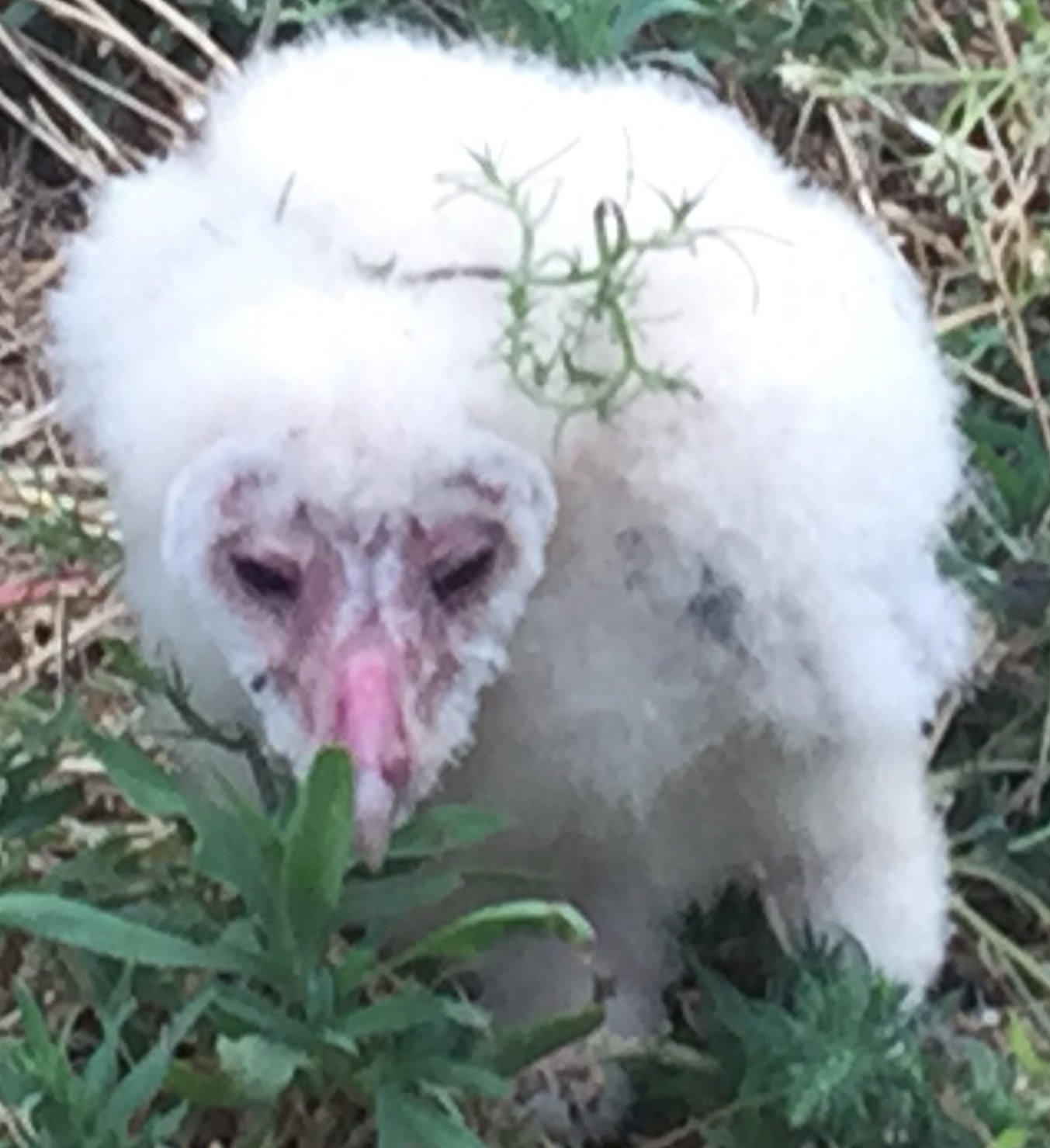Contact Our Raptor Hotline at: 970-222-0322
All wild birds are protected by law. State and federal laws prohibit you from having any protected wildlife in your possession, even temporarily, unless you are transporting an injured raptor to receive medical attention.
When to Take Action:
- The bird is obviously injured:
- Wing is drooping to the ground.
- Blood is seen.
- Raptor is sternal (lying down) on the ground.
- Note: this is a typical posture for baby/immature raptors. A picture can help us figure out what’s going on!
- Raptor is trapped or caught in something.
- The raptor is in imminent danger from another predator (like dogs or cats) or has been caught by one.
- There are hazards like busy roads, and the raptor does not seem able to flee.
- The parents of a baby/immature raptor have been killed or seriously injured.
- A nest has been destroyed.
- A young raptor, covered only in white downy feathers, that is found on the ground.
- The raptor is unresponsive (has its eyes closed and does not respond to your presence).
A Raptor In Distress Might Look Like:




When to Observe:
Sometimes, a raptor is simply exhibiting a behavior you may not have seen before. Cool!
Here are some situations you might want to just observe for awhile before calling for help. You should watch from a distance and check periodically to see if the raptor has moved.
- Is the raptor eating?
- If so, it may be reluctant to leave its food even if approached. This is normal behavior.
- Is it a young/immature raptor?
- It may be out of the nest and exploring its environment while still being cared for by its parents. Check for parents you can see or hear nearby.
- When young raptors (not completely covered in downy feathers) are learning to fly, their early flights are not graceful and can get them into trouble.
- If the young raptor is not in immediate danger (like in a roadway), let the youngster learn!
- Look and listen for parents nearby. They may be out hunting and leave their young alone for a few hours at a time.
- You can try to carefully place young raptors back in the lower branches of a shrub or tree. It is not true that the parent birds will abandon young if they have been touched by humans, although parents may abandon a nest in an area where there is continual disturbance.
- For downy young (completely covered in fluffy, white feathers):
- Call RMRP immediately – it may have fallen from the nest.
Sometimes, well meaning people will collect a bird they believe orphaned, not realizing the parents are watching. Before removing a bird from its home, observe and watch for parents returning with food. REMEMBER: A young raptor’s best chance of survival is to be raised by its wild parents.
Before trying to handle an injured raptor, please contact our Raptor Hotline at 970-222-0322.
If you cannot reach our rescue team (they may be rescuing a raptor themselves), you can read our information about Handling an Injured Raptor.
